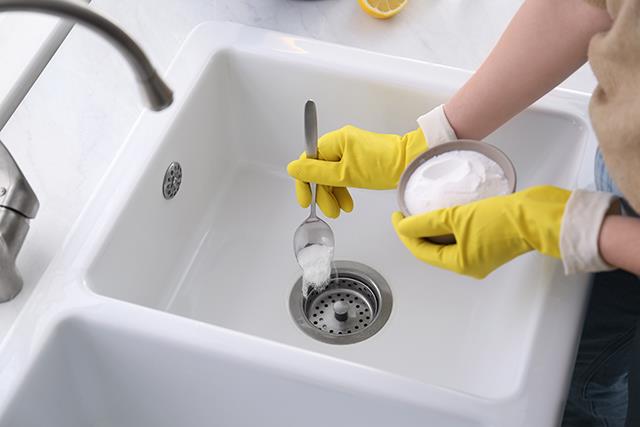Unpleasant odours from drains can be a nuisance in any household or commercial setting, potentially indicating underlying issues that warrant attention. These malodorous manifestations disrupt the ambiance and hint at potential hygiene concerns or plumbing problems. Addressing smelly drains promptly is imperative to maintain a clean and comfortable environment. This article presents a range of professional remedial tips to effectively combat and prevent foul drain odours.
-
Table of Contents
Routine Maintenance:
Regular maintenance is critical to preventing smelly drains. Implementing a scheduled maintenance routine involves flushing drains with hot water regularly to dislodge accumulated debris and prevent the buildup of organic matter, which can lead to foul odours over time.
-
Biological Drain Cleaners:
Biological drain cleaners containing beneficial bacteria and enzymes offer a natural, eco-friendly solution to combat foul odours. These cleaners break down organic matter, effectively eliminating the source of unpleasant smells while being safe for pipes and the environment.
-
Vinegar and Baking Soda Treatment:
A simple yet effective home remedy involves using a mixture of vinegar and baking soda to tackle drain odours. Combining these ingredients and pouring them down the drain, followed by hot water, can effectively dissolve residue and eliminate odours, resulting in drains that smell fresh.
-
Professional Drain Cleaning Services:
For persistent or severe drain odour issues, seeking the expertise of professional drain cleaning services is advisable. Expert plumbers employ specialized tools and methods to comprehensively clear drains, eliminating persistent blockages and odours.
-
Installation of Drain Filters:
Preventive measures such as installing drain filters or strainers can help trap debris and prevent it from accumulating within the pipes, thus reducing the likelihood of foul odours emanating from drains. Regularly maintaining these filters is vital to guarantee their optimal performance over time.
-
Inspection for Underlying Issues:
Persistent drain odours may indicate underlying plumbing issues such as blockages, leaks, or sewer line problems. A thorough inspection by a qualified plumber can promptly identify and address these issues, preventing further complications and ensuring long-term odour control.
-
Proper Waste Disposal:
Educating household members or occupants about proper waste disposal practices is crucial in preventing drain odours. Discouraging the disposal of grease, oil, food scraps, and other non-biodegradable materials down drains can significantly reduce the risk of blockages and foul odours.
-
Odor Neutralizers:
Commercial odour neutralizers designed for drains can mask unpleasant smells while targeting the underlying causes. These products often contain enzymes or fragrances that help neutralize odours and leave drains smelling fresh.
-
Emergency Plumber Services:
Accessing emergency plumber services is paramount in sudden and severe drain odour issues. Emergency plumbers are equipped to handle urgent plumbing problems, including foul drain odours from blockages, leaks, or other emergencies. Their prompt response can prevent water damage and health hazards associated with untreated plumbing issues.
-
Seeking Professional Expertise:
Obtaining the skills and knowledge of a qualified plumber to conduct a comprehensive assessment and diagnosis of drain odour problems is essential. Plumbers possess the knowledge and specialized tools to identify the underlying problems accurately, whether it’s a damaged sewer line, a malfunctioning trap, or inadequate venting. Their thorough assessment ensures that the root cause of the odour is effectively addressed.
-
Drain Ventilation Solutions:
Adequate ventilation is crucial for maintaining optimal drain functionality and preventing foul odours. Professional plumbers can assess the ventilation system and recommend appropriate solutions to improve airflow and reduce the risk of odours accumulating within the plumbing system. Installing or repairing vent pipes and air admittance valves are common remedies suggested by plumbers to enhance drainage and odour control.
-
Drain Line Hydro-Jetting:
For stubborn blockages contributing to foul drain odours, drain line hydro-jetting is a powerful solution recommended by plumbers. This method involves using high-pressure water jets to scour the interior of drain pipes, effectively removing accumulated debris, grease, and mineral deposits that contribute to odours. Plumbers proficient in hydro-jetting can restore drain lines to optimal condition, eliminating foul odours and improving drainage efficiency.
Incorporating these additional points underscores the importance of professional plumber services, especially in emergencies. It highlights specialized techniques such as hydro-jetting that plumbers employ to effectively address persistent drain odour issues.
Conclusion:
Addressing smelly drains requires a proactive approach that combines preventive measures with targeted remedial strategies. By incorporating routine maintenance, natural remedies, professional services, and preventive measures, households and businesses can effectively combat foul drain odours, ensuring a clean and hygienic environment. Investing in proper drain care eliminates odours and promotes plumbing systems’ longevity and optimal functionality, ultimately contributing to a healthier living or working space.

